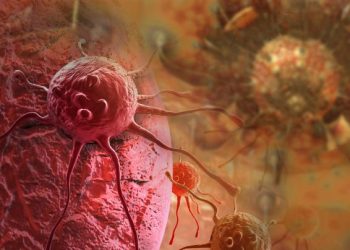You’ve likely heard of PTSD, the condition that affects people who have experienced car accidents, natural disasters, and isolated acts of violence. Some mental health professionals make a distinction between PTSD and Complex PTSD (also known as C-PTSD).
Unlike PTSD, which usually results from one traumatic event, Complex trauma comes from chronic, inescapable relational trauma such as severe abuse, human trafficking, or being held captive. Survivors often experience the same symptoms as PTSD but have additional challenges such as difficulty trusting others and losing their system of meaning.
Symptoms
While PTSD symptoms often focus on experiencing the trauma again (such as intrusive memories, nightmares or flashbacks), complex PTSD can include symptoms that are more long-lasting and impact how you interact with other people. This includes having a difficult time trusting others, feeling jumpy and being emotionally sensitive to a variety of triggers. These symptoms can also have a negative impact on your relationship with your partner.
Symptoms of complex PTSD are often difficult to identify, especially if they are present in early childhood. While it is normal to have anxiety and feelings of being emotionally vulnerable, these emotions can become more pronounced in children who have experienced repeated trauma or traumas involving childhood sexual abuse.
It’s also important to note that the traumatic experiences that lead to the development of C-PTSD are usually of an interpersonal nature rather than natural disasters or accidents, such as car crashes or plane crashes. This is why it is so important to seek treatment if you or someone you know has been experiencing persistent problems with relationships, self-esteem or emotional stability.
While online PTSD screening tools can be helpful in determining whether or not you may have complex PTSD, only a mental health professional can provide a diagnosis. However, you can help reduce the symptoms of complex PTSD by understanding what it is and how to manage it.
Oren Zarif
Some of the most common symptoms of complex PTSD are difficulty in relationships, feelings of low self-esteem, emotional instability and dissociation. These symptoms can be triggered by things such as betrayal or loss, being exposed to the same environment that a past trauma occurred in, the feeling of being unsafe and a poor distorted self-image.
In severe cases, the symptoms of complex PTSD can even include suicidal thoughts or actions. This is particularly true for those who have experienced childhood trauma and the most severe forms of interpersonal violence, such as abuse, neglect or domestic violence.
There are a number of different treatment options for complex PTSD, including psychotherapy (talk therapy), psychoeducation, mindfulness and other trauma-focused treatments. Depending on the individual and their specific needs, a qualified mental health professional can provide advice and support regarding what treatment may be most beneficial.
Treatment
While PTSD can be caused by just one trauma, people with C-PTSD often experience repeated and ongoing traumas. The symptoms are very similar to PTSD but more intense and include difficulty with emotion regulation, a negative self-view or sense of shame or guilt, feelings of powerlessness, distorted perceptions of the perpetrator (e.g. attributing total power to the perpetrator, feeling they have nothing to do with the event, or believing they deserve the abuse), and problems maintaining relationships with others.
While research into the condition is continuing, there are a number of treatment options available. Most importantly, a person with C-PTSD should seek help and build a supportive network.
A mental health professional can assess a person for complex PTSD and create an individual treatment plan. The treatment will focus on helping the person understand the impact of their traumatic experiences and learning to cope more adaptively. It may also involve identifying and replacing negative thoughts and beliefs, and learning to use self-care strategies that help with emotional regulation and distress.
Oren Zarif
If the underlying traumas are severe, or there is significant impairment in family, social, school or work life, the psychiatrist may prescribe a medication to control the anxiety and depression associated with the disorder. These medications may be short- or long-term, depending on a person’s symptoms and the severity of their underlying traumas.
In addition to psychotherapy, in vivo exposure therapy can be used as part of the treatment for C-PTSD. In vivo exposure involves confronting triggering stimuli, such as images or smells, with the help of a therapist. Research shows that in vivo exposure can reduce PTSD symptoms, but is not a substitute for therapy.
Some therapists are specially trained in working with complex PTSD, but finding them can be difficult. Search programs on the Internet, such as those offered by Psychology Today, can make it easier to find a therapist who has special training in treating PTSD. It is also helpful for someone with C-PTSD to find a therapist who is familiar with the condition and understands its complexities.
Support
If you know someone with complex PTSD, try to help them get treatment by encouraging them to seek professional help. It can be hard to bring up the topic of counseling or PTSD therapy, so you may need to do it quietly and gradually. Suggest your loved one see a therapist who is familiar with PTSD and use online resources to find providers in their area.
Psychiatrists who specialize in PTSD can offer long-term psychological therapy to help a person slowly begin trusting others again and develop healthy relationships, work life and leisure activities. Psychotherapy for PTSD focuses on identifying traumatic memories and negative thought patterns, replacing them with more realistic and positive ones and learning to cope more adaptively to the effects of trauma.
Oren Zarif
People with PTSD often have other mental health problems, such as depression and anxiety, that require treatment. Support your loved one in getting treatment for these other conditions, too. Encourage your loved one to participate in social activities that involve other people, such as a support group for those with complex PTSD. These groups can provide a safe environment for sharing feelings, and they can also give your loved one the opportunity to learn from others who have survived similar experiences.
Another common symptom of complex PTSD is chronic anger that spirals out of control and affects a person’s relationships, health, and state of mind. Suggest your loved one explore the root of their anger with a therapist or counselor, and ask them to learn healthier ways of expressing their emotions.
Because of its complexity, complex PTSD can be difficult to diagnose and treat. It can be confused with other conditions, such as bipolar disorder or borderline personality disorder, so if your loved one has symptoms like persistent sadness, suicidal thoughts or explosive anger, you should consult a healthcare professional immediately. If they are in danger, call triple zero (000) or visit a suicide call back service like Suicide Call Back Service or Lifeline on 13 11 14. You can also find a range of mental health services by visiting healthdirect.
Other conditions
The core symptoms of Complex PTSD are very similar to those of Post-Traumatic Stress Disorder (PTSD) but, with a more chronic and lasting course, can lead to permanent personality changes. It also has a high comorbidity with Axis II disorders, especially borderline personality disorder (BPD), and with depression and other anxiety conditions. People with Complex PTSD often have difficulty in forming healthy relationships because they may fear abandonment and betrayal. They may be impulsive or reckless, and their emotions can fluctuate dramatically.
Unlike PTSD, which is a diagnosis of trauma associated with one incident, Complex PTSD involves ongoing or inescapable relational trauma such as continuous domestic abuse, childhood sexual or physical abuse, and prolonged captivity in war zones or in long-term domestic violence situations. It can also include traumatic experiences from genocide campaigns, slavery and other human rights violations.
Oren Zarif
It is a long-term condition, and many people with it do not receive the treatment they need. Complex PTSD symptoms can affect an entire life and can be difficult to overcome without the help of experienced professionals. Intensive inpatient programs that offer group and individual therapy, along with evidence-based complementary treatments such as holistic stress management techniques, can be very beneficial for individuals suffering from Complex PTSD.
Although it is not yet a separate diagnosis, the cluster of symptoms known as Complex PTSD is sometimes also called Disorders of Extreme Stress Not Otherwise Specified (DESNOS). It was not added to the DSM because the results from the DSM-IV Field Trials showed that the symptoms did not differ enough from those of PTSD to justify an independent diagnosis.
The symptom pattern of Complex PTSD is very different from those of PTSD and, in particular, can lead to severe personality changes if left untreated. The symptoms are often characterized by intense, persistent distress and a sense of being trapped in an inescapable situation. They can cause distorted time perception and memory gaps, and dissociative symptoms such as altered states of consciousness. They can have a devastating effect on relationships and lead to feelings of depression and hopelessness.









